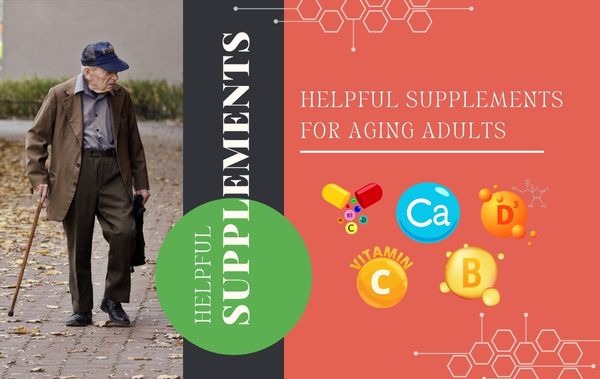*Please always check with your healthcare provider before taking any supplements. This is not medical advice.
As people age, their health needs change and the diet and vitamin protocols of their youth may not be as effective for maintaining the right nutrient levels. Various medical conditions and normal aging processes can lead to specific nutrient deficiencies which can exacerbate health issues. It is important to be conscious of your individual vitamin and nutrient supplement needs as a senior to ensure the best quality of life in your later years.
Barring specific health needs, here are some supplements which may be beneficial for aging adults.
Multivitamin
If you are generally healthy and eat a balanced diet, a daily multivitamin is a good way to get a variety of vitamins and nutrients at once. Only having to take one dose is convenient and more easy to remember instead of having to track multiple supplements. There are some brands which are specifically designed for adults over 50 or 65.
Calcium
Calcium is an important nutrient for supporting bone health and strength, a particular concern for seniors. It can be found in dairy products, some fish, eggs, and dark, leafy vegetables. Calcium should be taken in conjunction with vitamin D for best absorption.
Vitamin D
Vitamin D is important for bone health, supporting absorption of other vitamins, and may contribute to the prevention of a number of diseases with negative health impacts. Many adults are deficient in Vitamin D but it can be found in specifically fortified foods like dairy, cereal, eggs, and fatty fish.
Vitamin C
Vitamin C is known for its immune system support and also may prevent vision-related problems associated with aging. It is found in most types of fruits and vegetables, especially citrus, cruciferous vegetables, bell peppers, and tomatoes.
B Vitamins
It is harder for adults to absorb B vitamins with age, but these are critical for many functions including cardiovascular health and nerve function. Different B vitamins can be found in a number of foods including potatoes, poultry, meat, seafood, eggs, and some fruits and vegetables.
When it comes to optimal vitamin and nutrient intake, a great place to start is by working with your doctor, a healthcare professional, or even a nutritionist. They can recommend or perform a blood test to analyze your specific needs, as well as help you track your current diet and supplement protocol to see what to adjust. They can also make more specific recommendations based on any medical or health concerns or medications you may be taking to minimize side effects and prevent negative interactions.
Contact CJ & Associates Care Consulting to learn more about how we can be a partner in keeping you or your senior loved ones healthy and cared for.






